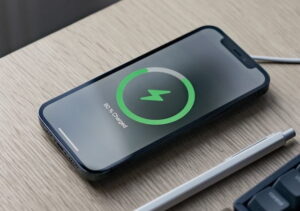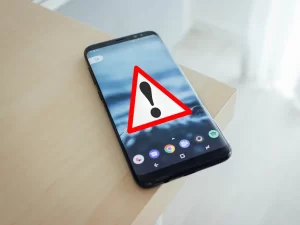Phone overheating is a common problem that can occur with any smartphone, regardless of make or model. Overheating can occur for several reasons, including using your device for too long, leaving it in direct sunlight, using too many apps at once, or using resource-hungry apps like games or streaming services. To fix the problem, you first need to figure out why your phone is overheating. Not only can excess heat make using your device uncomfortable, but it can also damage your battery and other internal components over time. Understanding what causes your phone to overheat can help you take steps to prevent it and keep your phone in good working order.
1. Quick Ways to Cool Down Your Phone
If your phone is getting too hot, you need to act quickly to prevent it from getting damaged. The first thing you should do is put your phone down and try turning it off. This will allow the device to cool down without any processes running in the background that are adding heat. Remove any boxes or lids as these can trap heat and restrict airflow. Keeping your phone in a cool place, away from direct sunlight, can help it cool down faster. However, don’t put your phone in a very cold place, such as a refrigerator or freezer, as this can cause condensation and further damage the internal components.
2. Avoid Direct Sunlight and Hot Places
A simple way to prevent your phone from overheating is to keep it out of direct sunlight and other hot places. If your phone is exposed to sunlight for extended periods, it will heat up quickly, even when you’re not using it. If you’re outside on a hot day, keep your phone in your bag or pocket to keep it cool. Avoid placing it on hot surfaces such as car dashboards. If you’re indoors, try to keep your phone away from ovens, stoves, and space heaters. Keeping your phone away from excessive heat will help it perform better and last longer.
3. Reducing the Use of High-Performance Apps
If you use applications that require a lot of processing power (such as graphics-intensive games, video editing software, or augmented reality applications), your phone can heat up quickly. These apps use your phone’s CPU and GPU heavily, causing your phone to become very hot. Try not to use these apps too much, especially when your phone is already warm so that it doesn’t get too hot. It also helps your phone’s processor by closing unused apps that are running in the background. If you have to use an app that requires a lot of power, you’re regularly damaging your phone so that it can cool down.
4. Optimizing Your Phone’s Settings
Changing your phone settings can be very helpful in preventing your phone from overheating. Your phone’s processor and battery will work better if you reduce the screen brightness, stop apps from refreshing in the background, and turn off location services when you’re not using them. You can also get better performance by turning on Battery Saver or Power Saving Mode, which limits background activity and reduces power consumption. Making these changes can help you keep your phone’s temperature under control while still allowing you to use it comfortably. Also, make sure your phone’s software is always up to date. Manufacturers often release updates to fix bugs and make phones run better, which can help prevent overheating.
5. Regularly Updating Your Apps and Software
Apps and software that are too old can cause your phone to overheat by using too many resources. When developers release updates, they often include bug fixes, performance improvements, and other tweaks to make your phone’s hardware work better. Keeping your apps and operating system up to date will help your phone run smoothly and stay cool. Your phone can be set to update itself, or you can manually check for updates if automatic updates are turned off. Keeping your device up to date not only prevents it from overheating, but it also makes it run better and protects it.
6. Managing Background Processes and Notifications
When your phone gets too hot, background processes and notifications can make things worse, especially if you’re using a lot of apps at the same time. Social media apps, email clients, and messaging platforms are often the culprits, as they constantly send notifications and update data. Taking care of these background tasks can make working on your phone easier by closing unnecessary apps and limiting notifications. You can limit what apps can do in the background, or disable auto-sync for apps that don’t need to be constantly updated. Controlling what runs in the background can help keep your phone cool and last longer on a single charge.
7. Look for Malicious Malware or Apps
Malware and bad apps can overheat your phone by using resources in ways that they shouldn’t. Often, you won’t even know that these apps are running in the background, which can be very harmful to your phone’s processor and battery. Running a security scan with a reputable antivirus program can help you find and remove any malware. Don’t download apps from sources you don’t trust. Instead, only buy apps from app stores you know and trust, like Google Play or the Apple App Store. Keeping malware away from your phone will help prevent it from overheating and protect your data from potential threats.
Conclusion
Overheating is a common problem that can damage your phone’s health, performance, and battery life. You can help keep your phone cool and running smoothly by understanding what causes your phone to overheat and taking steps to prevent it, such as managing apps, adjusting settings, and avoiding high temperatures. Simple things like disabling background processes, updating software, and using cooling accessories can make a big difference in how comfortable and efficient your smartphone experience is. By taking care of your device and using it with care, you can ensure that it stays in good condition and performs as it should for years to come.
FAQs
1. Why is my phone always very hot?
Your phone can overheat for a number of reasons, such as using it for too long, having too many apps open at once, leaving it in direct sunlight, or using resource-intensive apps like games or streaming services. Your device can also overheat if malware or background processes are running on it.
2. Can I put my phone in the fridge or freezer to cool it down?
No, it is not safe to put your phone in the fridge or freezer. Extreme cold can cause condensation to form inside your phone, which can damage internal components and cause water damage. Turn your phone off and place it in a cool place so it can cool down slowly.
3. Does my phone case get too hot?
Yes, phone cases can make your phone hot, especially if they are thick or not breathable. To help your phone cool down faster if it overheats, remove the protective case. This will allow more air to flow through the phone.
4. How do you prevent your phone from overheating while charging?
To prevent your phone from getting too hot while charging, don’t use it for high-powered activities, such as streaming video or playing games. If your phone gets hot while charging wirelessly, use a good quality charger that fits your phone and consider switching to wired charging.
5. Does Low Power Mode help prevent my device from getting too hot?
Enabling Low Power Mode (also known as Battery Saver) reduces your phone’s power consumption by limiting background activity, screen brightness, and app performance. This prevents your phone from overheating.




